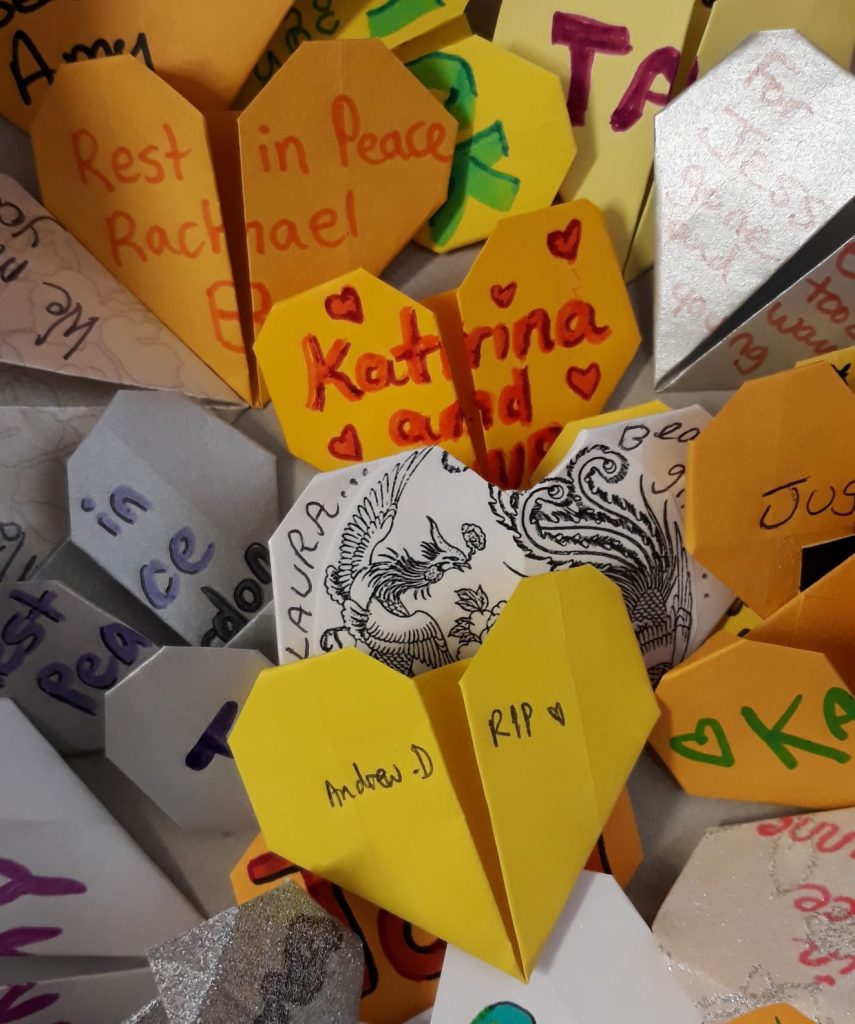More than 30 lives saved thanks to naloxone
August 29, 2021
The overdose reversal drug naloxone is now available for free to Tasmanians, following a successful trial funded by the State Government and supported by Anglicare.
Myf Briggs from the Tasmanian Department of Health said the State Government has committed ongoing funding to expand the program and make the easy-to-use nasal spray more widely available.
“The trial highlights the vital role naloxone plays in reducing opioid-related overdose, potentially saving many lives and sparing families the heartache of losing a loved one,” says Myf.
Anglicare part of trial
450 naloxone kits were distributed through Needle and Syringe Program (NSP) outlets across the state during the trial. This included NSPs operated by Anglicare.
NSP staff were able to give out naloxone kits and speak to people about the signs of opioid overdose and how to respond.
“Naloxone gives people the gift of time – a window of opportunity to get medical help,” said Anglicare NSP worker Jo Murphy. “We know of 32 people who have used the spray to reverse an overdose. If they hadn’t been able to access it, it’s likely they would have died.
“I would love to see naloxone included in all first aid kits,” she said. “It can’t be misused so it’s very safe”.
What is an opioid?
Opioids are drugs derived from the poppy plant. Anyone who takes opiates, either recreationally or as part of a pharmaceutical prescription for pain relief, is at risk of accidental overdose.
Most overdoses are caused by a prescription medicine, rather than an illicit drug such as heroin. Prescription medicines in the opioid family include morphine, codeine, tramadol, buprenorphine, methadone and fentanyl.
Jo Murphy said the risk of overdose increases if a person mixes opiates with other opiates or depressants (including alcohol) or accidentally mixes prescribed medications.
“People’s tolerance to opiates can change,” she said. “This is particularly the case if a person uses an opiate after not using it at all for some time, or if they have used it at a lower dose.”
How does naloxone work?
Naloxone works by blocking the opiate receptors. It only takes 2 – 3 minutes to be effective, depending on how many doses need to be given at the time.
“Naloxone lasts for 30 – 90 minutes, so there is a danger of the person slipping back into the overdose once the naloxone has worn off. This is why it is still crucial to call an ambulance,” says Jo.
What are the signs of an overdose?
- The person is not breathing
- The person is breathing, but it is shallow and/or erratic
- The person’s fingertips and/or lips have turned blue or grey. This indicates there is not enough oxygen reaching the brain
- There is no response at all when you try and wake the person up.
What should I do?
Call an ambulance immediately. The police will not become involved even if the overdose has been caused by an illegal drug.
If you have naloxone at hand, use it. If it’s safe to do so, have the person lie on their back, tilt their head back, check their nasal passage is clear and administer the spray.
It’s important to stay with the person until the ambulance arrives.
Where can I get naloxone?
You can pick up a naloxone kit at the following NSP outlets:
Hobart: 159 Collins Street (Anglicare)
Glenorchy: 436 Main Road (Anglicare)
Bridgewater: 6 Bowden Drive (Bridgewater Community Centre)
Rosny: Clarence Integrated Health Centre (Department of Health)
Launceston: 111 Elizabeth Street (The Salvation Army)
Burnie: 51 Wilmot Street Burnie (Anglicare)
Devonport: 63 Stewart Street (Youth Family and Community Connections).
Kits are also available in Hobart from the Tasmanian Council on Aids, Hepatitis and Related Diseases (TasCAHRD) and The Link Youth Health Service.
These venues are safe, welcoming spaces. You can remain anonymous if you prefer.
August 31 is International Overdose Awareness Day.
This is a day people around the world remember friends and loved ones who have died from an accidental overdose.

